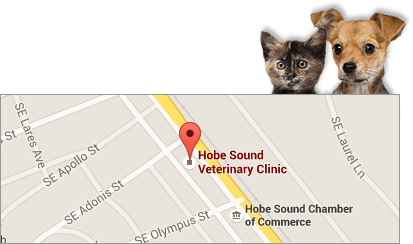Do horses provide you joy? Whether you’re currently involved or simply like watching these magnificent creatures from a distance, this is an excellent opportunity to offer our horses a little attention. The 26th of April is Help A Horse Day. The founders of this day set out to unite horse enthusiasts in their shared goal of drawing attention to the plight of rescued horses and the courageous individuals who work to provide them with a safe haven. The following piece highlights horses, written by a local vet.
The Past and Present of Horses
Domestication of horses began approximately 6000 years ago. They have had an incalculable effect on human culture ever since.
Unfortunately, Silver is often perceived as a commodity, rather than a living entity. Horses, in reality, are very sensitive and intelligent creatures that can forge profound emotional connections with those who love them and care for them. We think all horses need a nice pasture, some friends, plenty of attention and care, and a clean, cozy stall. Unfortunately, many do not have even that basic level of good care.
What is Driving the Need for So Many Horse Sanctuaries?
As long as there have been domesticated horses, there have been horses put in horrible circumstances. When Henry Burgh, founder of the American Society for the Prevention of Cruelty to Animals, witnessed a cart driver brutally abusing his horse in 1866, he intervened. The first-ever case of horse cruelty arrest was a direct outcome of that incident.
Several things have made this problem worse over the last hundred years. That list includes the sale of horse flesh, the fact that many in the racing industry prioritize profit over protection, financial concerns, and the capture of wild horses.
Horses Are My Passion! Should I Adopt One?
We wish we could give you an enthusiastic yes, but that’s just not the right response for this situation. While owning a horse can be incredibly rewarding, it can also be incredibly expensive and incredibly time-consuming.
The upkeep required on horses is immense. Feeding Silver, picking his hooves, scrubbing his water bucket, and cleaning his stall are all daily necessities. Turnout time is also essential for horses. Horses also need regular pedicures. We can’t stress the significance of regular farrier visits enough; healthy hooves are crucial for your horse’s health and well-being. Then there’s dental care, veterinarian treatment, feed, tack, and the list goes on and on. Needless to say, all of those things can get very expensive very fast.
If you do decide to adopt a horse, building a strong bond with your new equine friend is crucial. For guidance on this, check out our article on Tips From A Hobe Sound, FL Veterinarian: Bonding With Your Horse.
Many people adopt horses without fully understanding the financial, time, and effort commitments involved. This, unfortunately, is part of the problem, rather than part of the solution.
That’s not to suggest that adoption isn’t a fantastic idea; it’s just not something to take lightly.
We do have another suggestion, particularly for those who are new to the horse world. More and more people are opting to lease horses. You would effectively be renting Silver, though the specifics may vary according to the barn and owner. One advantage of this path is that you won’t have to commit to anything permanently. There’s also a degree of shared accountability, but the ultimate responsibility rests with the owner. This may also serve as a try-before-you-buy.
If you’re still interested in adopting a horse, then you may find it much easier to go with a full-service boarding facility. In addition to tending to Silver’s cleaning, grooming, and turnout requirements, they will also arrange or collaborate with you about matters such as foot trimmings and veterinarian treatment. Obviously, half the issue is locating a great barn. Ask your vet for more information.
What Are Other Ways To Help Horses?
Fostering
If you currently own a barn and already have equine residents, you might choose to think about fostering a rescue horse or getting involved in rescues. Of course, there will be additional costs, but it could be worth it in the end. When looking for a horse, you can find a list of options on the ASPCA-approved website MyRightHorse.org. Many unrideable rescues can make great pasture buddies!
Sponsor
Many rescued horses are also in need of sponsors. This is an excellent way to aid a horse Without committing to the huge undertaking and commitment that ownership entails. Horses are not necessarily out of danger after that freedom ride. Many are in horrible shape when they arrive at their sanctuary. Even the healthiest will need pedicures and full exams at the very least.
Raise Money for a Horse Rescue
Whether you are in the market for an adoption or simply wish to contribute to a worthy cause, you will find an abundance of amazing, dedicated individuals and rescues who are saving these majestic animals
A few categories of equine rescues include:
Auction Rescues: Even though it is against the law to slaughter horses in the United States, North American horses are not safe. Horses are often bought at auction by kill pen buyers expressly to be shipped to Mexico or Canada. The horses are usually kept in terrible conditions, frightened, and confused. Many of them are also sick, hurt, old, and/or underweight.
Rescue Organizations for Racehorses: For many horses, the racing profession is a gateway to horrible circumstances. Many rescues offer homes to retired racehorses, and often have adoptable horses. Adopting a rescued thoroughbred has several benefits. Many of them are stunning, fairly priced, and relatively fresh. (Changing Silver’s riding style will obviously require training, but that’s another topic.)
Saving Draft Horses! There are still many horses who toil away their entire lives on farms, only to be cast aside when the wear and tear of that heavy labor finally gets the best of them.
Wild Horse Rescues: These all operate in different ways: some provide safe havens where the horses can stay unchained. Others help by taming feral horses and turning them into great companions.
Animal Welfare Rescues: Rescues involving cases of abuse or neglect are all too common. However, sometimes horses need rescue because their owners have come across hard times, or perhaps even died.
Donkey/Mule Rescues: We shouldn’t forget about Silver’s cousins! Donkeys also find themselves in sticky situations sometimes.
International Rescues: The past few decades have been volatile, to say the least. The result has been catastrophic circumstances across many nations. There are active–and often overwhelmed–rescues on every continent except Antarctica.
This is, of course, by no means an exhaustive list. There are lots of other rescues out there. Some specialize in working with certain horse breeds, while others service local areas. We do advise checking out any rescue before giving money to them. You don’t need to do anything extraordinary; simply verify their legitimacy and activity on their website and social media. This is where 501(c)(3) organizations really shine.
That’s not to say smaller rescues aren’t doing good work: more to caution people to be careful when dealing with social media. Scammers occasionally repost content from popular pages. Make sure you’re going through the actual rescue, and not a copycat.
That all said, here is a list of rescues organized by state.
Stand Up For Silver
Legislature is one great way to get involved. All horse lovers can do their part by showing their support for upcoming laws that will aid in the protection of horses. The simple act of spreading the word can have a significant impact on animal rights issues.
Our Tips for Helping Horses in 2024
What specific health issues are common in rescued horses due to neglect or abuse?
Rescued horses often present with a range of health issues resulting from neglect or abuse, including malnutrition, which can lead to weakened immune systems and increased susceptibility to disease. Many also suffer from hoof problems, such as thrush and laminitis, due to poor care and unsuitable living conditions. Dental issues are also common, stemming from lack of routine care, causing difficulties in eating and secondary health problems. Additionally, psychological issues like anxiety and mistrust can manifest, complicating rehabilitation and care. Regular veterinary check-ups and tailored care plans are essential for their recovery.
What are some key questions to ask and factors to consider when deciding whether to adopt or lease a horse?
When considering whether to adopt or lease a horse, it’s crucial to assess one’s long-term commitment and ability to meet the extensive care needs of a horse. Key questions include: What are the financial obligations, such as feed, vet care, and farrier services? What is the level of experience with horse care and training? How much time can be dedicated daily to the horse’s care? Additionally, understanding the horse’s health and temperament, as well as the terms of the lease or adoption agreement, is essential to making an informed decision.
How much should someone expect to spend annually on the basic costs of horse?
When budgeting for a horse, annual expenses can vary widely but typically range between $3,000 to $10,000, depending on factors like location and the level of care. Basic costs include feed and supplements, which may average around $100 to $400 per month. Routine veterinary care, including vaccinations and check-ups, and farrier services for hoof care can add up to $300 to $1,000 each per year. Additional costs for boarding, if needed, can significantly increase expenses, ranging from $200 to over $1,000 monthly.
What training is typically needed when adopting a rescued racehorse to transition it to being a riding horse?
Adopting a rescued racehorse and transitioning it to a riding horse requires specific training to adapt the horse to new riding styles and environments. This includes retraining to desensitize the horse to non-racing stimuli and teaching it commands and cues different from racing. Training often starts with groundwork to build trust and progresses to under-saddle work that emphasizes a slower, more relaxed pace than racing. Patience and consistency are key, as racehorses must unlearn their race behaviors. Engaging a trainer experienced with ex-racehorses is highly advisable to ensure a smooth transition.
What are some specific signs of horse neglect or abuse that people should be aware of and report if they see them?
Signs of horse neglect or abuse to watch for include visible malnutrition, such as a prominent ribcage or hip bones; untreated injuries or illnesses, evident through wounds, limping, or signs of pain; poor hoof condition, such as overgrown, cracked, or infected hooves; and signs of psychological distress, including excessive pacing, aggression, or fearfulness. Additionally, inadequate living conditions, such as lack of shelter, dirty stalls, or unsafe fencing, are indicative of neglect. Observing any of these conditions warrants immediate reporting to local animal welfare authorities.
Are you in search of a top-notch local horse veterinarian? Reach out to our Hobe Sound, FL veterinary clinic today! We offer a range of services to keep your equine companion healthy, including Veterinary Dentistry. Regular dental care is crucial for horses and can prevent many health issues, ensuring your horse stays happy and comfortable.




